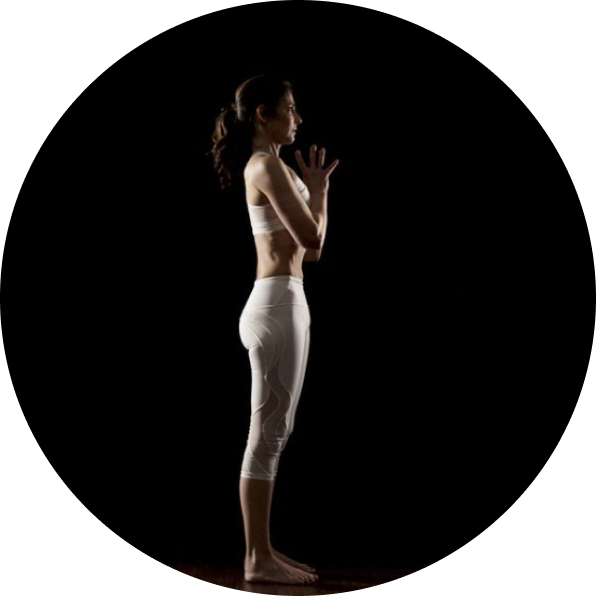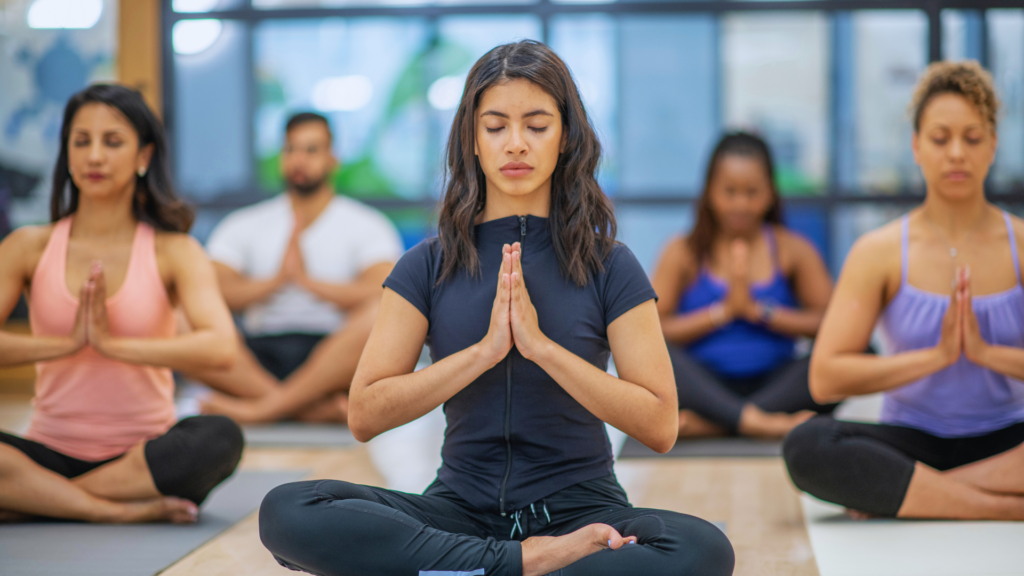Since launching LYT into the global arena with our online platform and teacher trainings, I have been most proud of the growth and passion of our vibrant and joyful community. After the Covid lockdown, a plethora of online fitness and yoga apps emerged. With this emergence of many more choices, I focused solely on the course I had set forth and never doubted the strength of our quality offerings and the continual commitment we embodied to evolve and improve our platform. Since that time, people who tried to launch their own platforms and struggled have asked me how I stayed the course in this saturated market. The simple answer is that I held on to my core values and focus. I truly believe that I learned this unwavering commitment from my parents and continued to strengthen my muscle of metaphorical endurance throughout my career and in my relationships. I not only had a vision and mission to educate people about biomechanics and intelligent movement, but I also possessed the resolve and endurance necessary to navigate the unchartered path. The word endure has its roots in the Latin verb endurare, which means “to harden.” This verb is a combination of two elements: en- (a form of in-, meaning “in, within”) and durare (meaning “to last, to harden, to make durable”). Durare itself stems from the Latin adjective durus, meaning “hard” or “strong.” The notion behind endure was originally associated with the idea of withstanding something tough or difficult. The word entered Middle English as enduren through Old French (from endurer), retaining its original sense of “to make hard or durable” but later evolving to mean “to undergo” or “to suffer patiently.” Over time, its meaning further expanded to include the modern sense of persisting through hardship or maintaining strength in the face of adversity. The word resilient comes from the Latin verb resilire, meaning “to leap back” or “to spring back.” This verb is formed from two parts: the prefix re- (meaning “back” or “again”) and salire (meaning “to leap” or “to jump”). The literal meaning of resilire was “to bounce back” or “to recoil.” Life requires us to have endurance and resilience to manage the challenges that we all will inevitably face. Whether it’s a professional or personal valley that we traverse, staying true to ourselves and continuing to ‘show up’ are key ingredients for building endurance and meeting our goals. ‘Staying the course’ speaks to perseverance and the ability to maintain focus, energy, and commitment despite the inevitable challenges. It’s not just about sheer willpower; staying the course requires physical stamina, mental resilience, and emotional stability. Balancing these three facets ensures that we stay grounded and continue moving forward, no matter the stage of the journey.
In any season of the year or in our lives, we can succumb to the inertia of hitting a roadblock or continuing a habitual manner that isn’t fostering resilience and growth. For many people, their own physical health seems to be the first victim of this veering off course. With work and family commitments, changing resources, and stresses of everyday life, it can feel overwhelming to also consider our own physical needs. The physical aspect of staying the course is often the most neglected and yet the most visible. It might be training for a marathon, practicing LYT more regularly (!), working on a healthier diet, or simply inserting more movement in our daily routines. Physical endurance is built through habits that nurture your body: regular exercise, sufficient sleep, and a balanced diet. Yet, maintaining physical stamina also requires a committed but adaptable plan. In the early stages of tending to your physical health, energy might have come easily, driven by excitement and motivation. However, as time goes on, fatigue or setbacks—like injury or burnout—may arise. Here, the importance of pacing yourself becomes clear. Pushing too hard, too fast can lead to exhaustion. Taking moments to rest and recover is vital for maintaining long-term physical well-being. Success in any journey requires understanding that consistency, not intensity, leads to sustainable growth. If you find yourself in a slump, start small to get on track. Staying the course for you is the best gift to give yourself! On LYT Daily, we had this in mind when we created the “Start Here” and “Build Your Capacity” series as well as our monthly challenges with curated classes based on the theme of the month (make sure to check out this month’s “Stay the Course” challenge).
Physically staying on course is the key for remaining unfazed by challenges or hiccups. Because our physical health profoundly impacts our mental wellbeing, it makes sense that our mental resilience will also be fortified by regular movement and wellness tools. Mental resilience is the capacity to stay focused, adapt to new information, and problem-solve but it doesn’t mean we are immune from feeling stress or frustration. Staying the course mentally creates the capacity to handle challenges and respond with grace when the accompanying emotions arise. The key feature for mental wellbeing is to develop a growth mindset: view setbacks as learning experiences, rather than signs of failure. Break big tasks into smaller, more manageable ones, and celebrate small wins. Remember that mental strength is like a muscle—it strengthens over time with practice and patience. Additionally, staying curious and flexible mentally helps in problem-solving. Rigid thinking can lead to unnecessary frustration, while a mindset open to new strategies and perspectives keeps you adaptive and creative. Sometimes, staying the course mentally requires stepping back, reassessing, and being open to altering your approach. When practicing LYT, challenge yourself to take classes that you might have assumed were too challenging or not a theme that you would find interesting. Both physically and mentally, embrace the opportunity to alter your perception of your own capabilities and you might find that you not only stay the course, but brighten the landscape! And with a more open mindset, you will build both endurance and adaptability. As you continue the course, you learn to adapt your strategies, grow from experiences, and become stronger with every challenge you face. The ability to adjust and evolve is crucial for success in any area of life. Endurance encourages this flexibility, allowing you to view obstacles not as permanent barriers but as opportunities for learning and development.
To stay the course through all stages of your journey, it’s vital to recognize that physical, mental, and emotional health are deeply interconnected. Physical exhaustion can lead to mental fog and emotional irritability, while emotional stress can manifest as physical tension or fatigue. Recognizing this interdependence means that balance is key. Create routines that nourish all three areas. Physical exercise can boost not just bodily health, but also mental clarity and emotional well-being. Mental practices like mindfulness can reduce stress, which in turn helps you feel more emotionally grounded. Meanwhile, strong emotional health allows you to approach both physical and mental challenges with greater resilience. Most importantly, staying the course isn’t about perfection; it’s about persistence. It’s about cultivating a holistic approach that integrates physical, mental, and emotional endurance, and recognizing that setbacks are not failures but part of the journey.
I know that through the physical challenges of climbing actual mountains, to the emotional gut punch of losing my beloved dad, to the mental stresses of moving houses and becoming empty-nesters, my LYT practice served as a beacon for staying the course. By nurturing our bodies, training our minds, and grounding our emotions, we all can remain steady in the face of adversity, and keep moving forward—no matter how long the road ahead may be. And know that I am beyond grateful for your commitment to LYT and will continue to cheer you on along the way!
“It does not matter how slowly you go as long as you do not stop.” – Confucius





